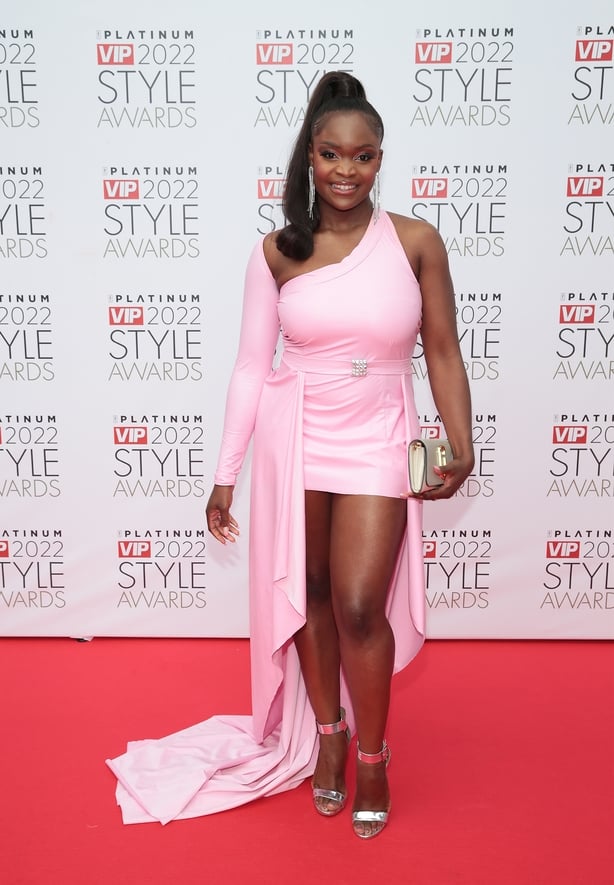Pamela Uba was crowned Miss Ireland in 2021, but for her, her true "crowning glory" was her hair. Like many women, her attachment to her tresses was emotional, and after struggling with it she decided to get a hair tranplant earlier this year.
She spoke to the Ray D'Arcy Show about the process, listen back above.
"A lot of us women, we probably wear our hair as our crown really", she said. "We get it done and we want people to notice it and want people to comment on it, and it just makes us feel good. I just felt like my hair wasn't making it feel good anymore."

Being Black and Irish, Uba's hair carries a different kind of significance to white women, she said.
"Our hair can mean so much to different people, even depending on what tribe or culture you come from within the Black community.
"Knowing that and going into a society or growing up in a society [where] people don't understand that significance and what it means to us, and then telling us that it may not suit society standards, that can be very difficult for a child growing up. I just felt like I didn't have this good relationship with my hair."
Uba moved to Ireland in 2004, aged eight, and recalled incidents where her hair was touched without her consent, an often cited micro aggression experienced by Black people and written about by Irish author Emma Dabiri in her book Don't Touch My Hair.
Added to that was the fact that Afro hair requires more maintenance:
"It's very kinky, curly, that's what we call it, or kinky coily and it comes in various textures and various curl patterns and what not, but it does require a lot of maintenance.
"Brushing my hair sometimes is just a chore, I literally have to do it section by section because it can be quite painful." She added that you need to be trained enough to look after your hair all the time.
From oiling to wash days, the process can take a lot of time and effort, though Uba noted: "It's the same as any woman going to the salon, but I suppose that's where my problem started. I couldn't go to a salon here".
Uba recalled asking for a pixie cut when she was younger and being told that the stylists "don't deal with" her kind of hair. "Nobody would touch my hair", she said.
"Normally, you go into a salon and you come out feeling really good, and that was never the case."
Uba decided to chemically straighten her hair with relaxers on her own or with her mother's help because she didn't like the look of her curly hair and heard a lot of criticism from other people toward curly hair. Though she now sees that Afro hair is "gorgeous as it is", she then felt pressured to have straightened hair like models would have.
"I felt the moment when my hair burnt", she remembered, recalling how her hair "was just coming off in the shower".
After that, Uba resorted to using wigs and extensions that put more strain on her hair. "Beeing a beauty queen, there's obviously certain beauty standards that just get put on you. I know it comes with the territory but at the same time, I felt, I have to look good all the time.
"If I had just accepted my hair as it was and worn my hair out as it was, I wouldn't have run into all of these problems, but society makes you feel like it's not good enough", she said, noting that in some job interview circumstances Afro hair was "considered untidy".
Uba then developed alopecia, which prompted her to start trialing plant-based products and even undergo plasma injections into her scalp to try and stimulate hair growth. After seeing another Black female influencer undergo a hair transplant, Uba started to consider doing the same.
The alopecia affected an inch-wide section at the front of Uba's hairline, while the rest of her hair was badly damaged from the relaxers. In the end, she decided to shave off all of her hair and "start from scratch", with transplanted follicles in the front of her hairline.
Calling the start of the process "no joke", she recalled having to sleep at a 45 degree angle the night after. The procedure was done at the end of September and Uba said she's already happy with how it's progressing.
She stressed, however, that research is key before such a procedure: "You need to know who your surgeon is."
To listen back to the full interview, click above.

